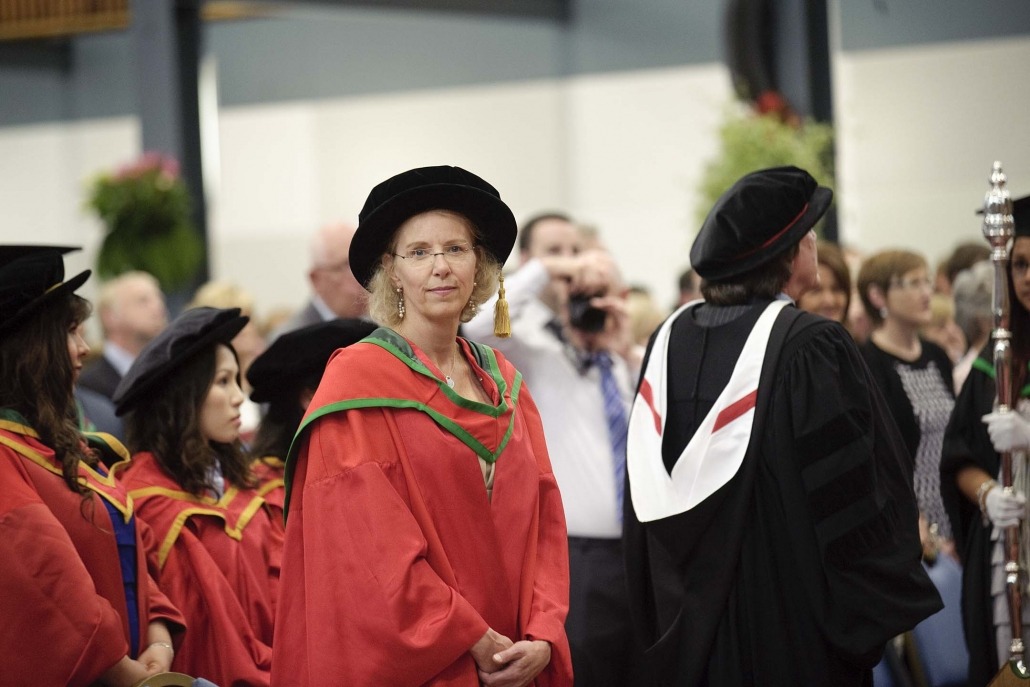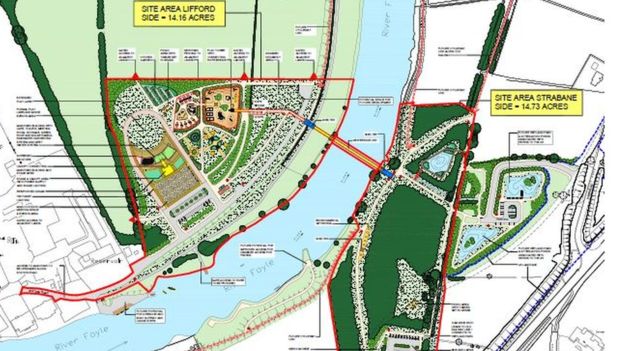Significant City Deal and Economic Growth Funding Package confirmed for Derry and Strabane.
The announcement today of a £105M economic package by the UK Government in the Derry City and Strabane City Region has been widely welcomed by City and District partners with the Mayor saying it will be “a significant catalyst for change and economic growth” for the Derry City and Strabane District and the wider North West and expressed his delight that it has been secured during his Mayoral year as a key priority.
The investment package announced comprises a £50M ‘City Deal’ and a £55M ‘Inclusive Future Fund’ and is the culmination of a long period of engagement with Government in relation to advancing priority projects and initiatives within the City and District’s Inclusive Strategic Growth Plan and City Deal proposals.
Reflecting the model recently announced by Government for the Belfast Region City Deal, it is anticipated that the UK Government investment package announced today of £105M for Derry~Londonderry and Strabane will be at least matched by a similar commitment from the NI Executive and will lever further investment from project partners and other third party sources which it is hoped will eventually lead to an overall investment injection of in excess of £300M.
The announcement follows a visit to the
City last July when the Chancellor, Philip Hammond met with civic and political
leaders to hear of the plans and invited a bid for a City Deal to be formally
submitted.
The bid, supported and endorsed by all local and regional political parties and representatives and devised around the key strategic economic projects outlined in the City and District’s Inclusive Strategic Growth Plan 2017-2032.
Led by Derry City and Strabane District Council, the bid was developed in partnership, and with the support of a wide range of local education, business and economic partners – including the Ulster University, the North West Regional College, both the Londonderry and Strabane Chambers of Commerce, the Western Health and Social Care Trust, Visit Derry, City Centre Initiative and the Foyle Port, in consultation with all associated NI Government Departments.
At the core of the bid is education, innovation, job creation and skills development with a key focus being the advancement of the much sought after expansion and growth of the Magee campus of Ulster University.
The investment package announced today,
will enable planning and business case development to now proceed on proposals
for a significant landmark riverfront university medical education and
innovation hub, comprising a graduate entry medical college and centres of
innovation, research and teaching excellence in data-driven personalised
medicine, cognitive analytics and robotics and automation, eventually
delivering over 200 new posts/research assistants at the City’s university and
upwards of 2,000 additional students.
The stimulus package will additionally
advance the delivery of a range of smart city and digital infrastructure
projects and initiatives, further positioning the City and District as a highly
digitally enabled location for cutting-edge business development and expansion
and inward investment.
The catalytic impact of this could
therefore result in the single biggest ever combined and integrated funding
injection the City and District, that will enable progress and delivery of
other key infrastructure, tourism and regeneration projects contained within
the Plan and Bid in both Derry City Centre and Riverfront and in Strabane Town
Centre.
Mayor of Derry City and Strabane District Council, Councillor John Boyle said: “This hugely significant announcement today for the Derry and Strabane District will go some considerable way in addressing the long-standing obstacles to economic development that this City Region and its people face. It is good news and is the result of an enormous amount of work and sustained effort invested by Council and the City and Regional partners to develop, deliver and negotiate on the bid.”
Council Chief Executive John Kelpie
acknowledged the collaborative approach and the unified vision and commitment
demonstrated by politicians, and partner organisations in development of the
bid and the advice and support received regionally and nationally in securing
such a positive outcome.
Enthusiastic about the opportunity
presented by today’s announcement he commented: “This City and District has
seen much progress in recent years economically, physically and socially. It
has however significant remaining challenges in overcoming an infrastructure
deficit and a legacy of underinvestment both of which have been such inhibitors
to sustainable economic growth.
“This funding package, if directed at
the key agreed strategic growth projects and if used to lever significant
further public and private sector investment, will deliver a new era of
unprecedented growth and development for the City and Region providing tangible
benefits for all of our citizens and a promising future for our children and
young people.”
Other City Deal Project partners reacted equally positively with the Vice Chancellor of Ulster University, Professor Paddy Nixon said, “This investment will now see the rapid development of plans to grow and enhance facilities and student numbers at the Magee Campus including the Graduate Entry Medical School.”
Brian McGrath, President of Londonderry Chamber of Commerce said: “This funding is hugely welcome and provides a solid platform upon which to grow and enhance the competitiveness of the City and Region and attract further significant exciting new companies, business prospects and investment.”
Council Chief Executive, John Kelpie
concluded: “The next steps will now be for everyone to continue to work
together to develop the necessary detailed business plans and advance the
projects through planning and design. We will do this by using this
unprecedented opportunity to promote the future of this City and District as a
location of choice for all in terms of business, lifestyle and ambition.”





